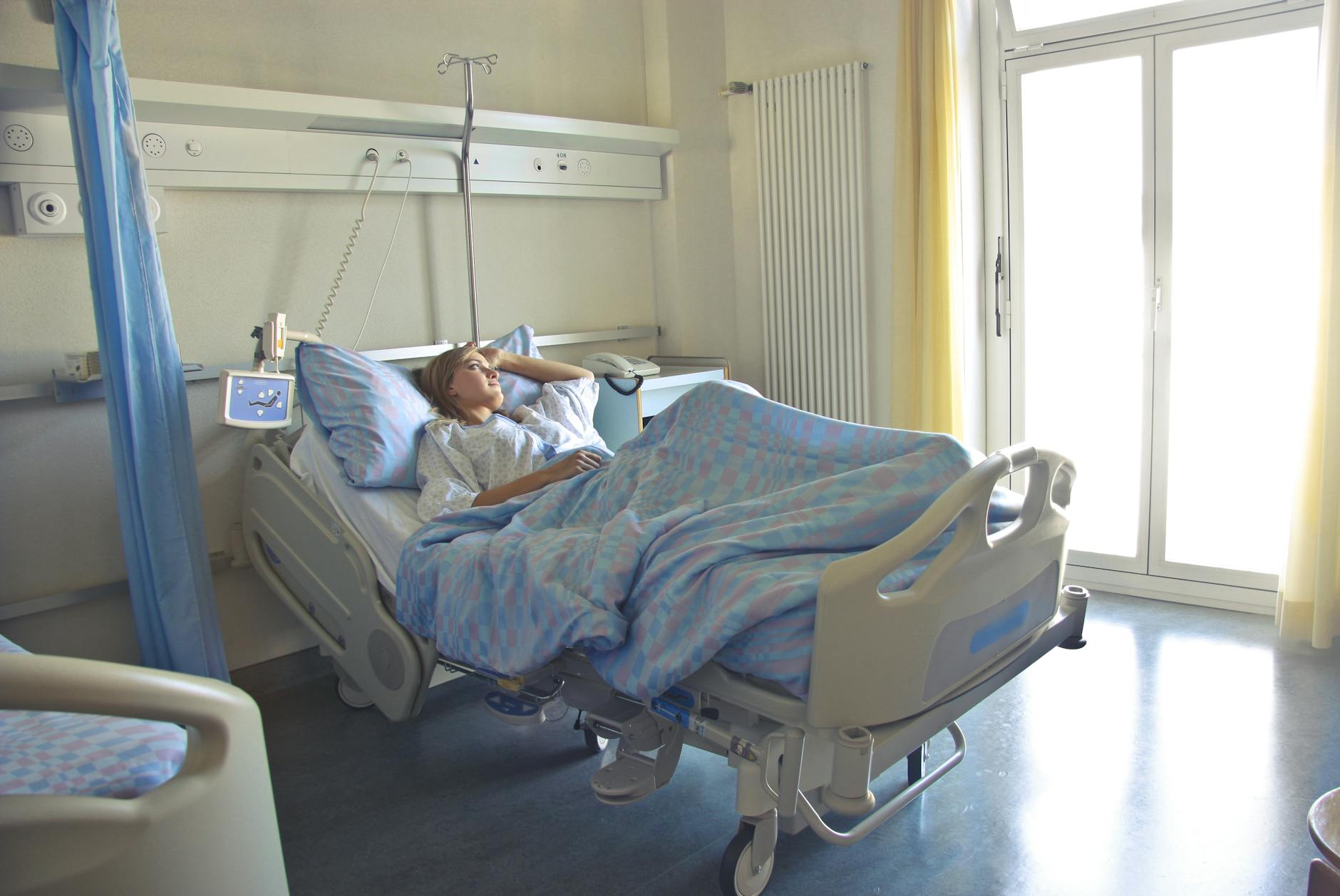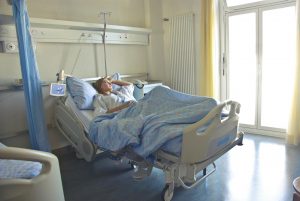Medicare, the cornerstone of healthcare for millions of Americans aged 65 and older, as well as certain younger individuals with disabilities, stands at a critical juncture nationwide. In Louisiana, a state grappling with unique demographic, economic, and health challenges, the future of Medicare is an especially pressing concern. With an aging population, persistent health disparities, and the ever-present pressures of rising healthcare costs, ensuring the sustainability and effectiveness of Medicare in Louisiana is paramount for the well-being of its senior citizens and the stability of its healthcare system.
Louisiana’s distinct socio-economic fabric, characterized by a higher-than-average poverty rate, a significant rural population, and a legacy of health inequities—adds layers of complexity to the Medicare dialogue. The decisions made today and in the coming years, both at federal and state levels, will profoundly shape access to care, affordability, and the quality of life for hundreds of thousands of Louisianans.

The Current Landscape: Medicare in Louisiana
As of recent data, over 800,000 Louisianans rely on Medicare for their healthcare needs. This population is diverse, encompassing those new to retirement, long-term beneficiaries, and individuals with disabilities qualifying for coverage. The program is broadly divided into several parts:
- Part A (Hospital Insurance): Covers inpatient hospital stays, skilled nursing facility care, hospice care, and some home health care. Most people don’t pay a monthly premium for Part A if they or their spouse paid Medicare taxes for a sufficient period.
- Part B (Medical Insurance): Covers certain doctors’ services, outpatient care, medical supplies, and preventive services. Most people pay a monthly premium for Part B.
- Part C (Medicare Advantage): Offered by private companies approved by Medicare, these plans combine Part A, Part B, and usually Part D (prescription drug) coverage. Many also offer extra benefits like vision, hearing, and dental. Medicare Advantage enrollment has grown significantly in Louisiana, reflecting a national trend.
- Part D (Prescription Drug Coverage): Helps cover the cost of prescription drugs.
Louisiana Medicare Enrollment Snapshot (Approximate Percentages):
| Medicare Part/Option | Approximate Louisiana Enrollment Share | National Average (for comparison) | Key Features for LA Beneficiaries |
|---|---|---|---|
| Original Medicare (A & B) | 55-60% | 50-55% | Direct access to any provider accepting Medicare; often coupled with Medigap and Part D plans. |
| Medicare Advantage (Part C) | 40-45% | 45-50% | All-in-one plans; often includes extra benefits; network restrictions may impact rural access. |
| Part D (Stand-alone Plans) | 70-75% (of Original Medicare users) | 65-70% | Essential for managing chronic conditions prevalent in LA; costs vary by plan. |
| Dual Eligibles (Medicare/Medicaid) | ~20% | ~18% | Highly vulnerable population; integrated care models crucial for managing complex needs and addressing social determinants of health. |
| Note: These are approximate percentages and can fluctuate based on annual enrollment periods and reporting. Dual eligibles represent a subset of both Original Medicare and Medicare Advantage beneficiaries. |
Despite the comprehensive nature of Medicare, beneficiaries in Louisiana face particular hurdles:
- Provider Shortages: Critical shortages of primary care physicians, specialists, and mental health professionals, particularly in rural parishes, limit access to timely and appropriate care.
- High Chronic Disease Burden: Louisiana continues to struggle with high rates of obesity, diabetes, heart disease, and hypertension, leading to more complex and costly healthcare needs for Medicare beneficiaries.
- Socioeconomic Disparities: Poverty, lack of transportation, and lower health literacy disproportionately affect health outcomes and the ability to navigate the complex Medicare system.
- Impact of Natural Disasters: Frequent hurricanes and other environmental challenges disrupt healthcare infrastructure and services, adding stress to an already strained system.

Key Factors Shaping Medicare’s Future in Louisiana
The trajectory of Medicare in Louisiana will be influenced by a confluence of demographic, economic, technological, and policy shifts. Understanding these forces is crucial for proactive planning.
Demographic Shifts: The Graying of Louisiana
Aging Population: Like the rest of the U.S., Louisiana’s population is aging. As Baby Boomers enter Medicare eligibility, the sheer volume of beneficiaries will increase, placing greater demands on the system.
Out-migration of Younger Generations: Some younger, working-age Louisianans are leaving the state, potentially shrinking the tax base that supports Medicare, while the proportion of seniors increases.
Life Expectancy and Health: While overall life expectancy in Louisiana trails the national average, advancements in medicine mean more individuals are living longer with chronic conditions, requiring sustained and often complex care.
Economic Pressures and Funding Solvency
Federal Budget Constraints: The financial health of the federal Medicare Trust Fund is a perennial concern. Debates over solvency and potential reforms (e.g., changes to eligibility age, premium support) could directly impact beneficiaries.
Rising Healthcare Costs: Inflation in medical services, prescription drug prices, and advanced technologies continually pushes Medicare spending higher, placing pressure on both federal budgets and beneficiary out-of-pocket costs.
State Economic Conditions: Louisiana’s state budget affects its capacity to support programs that complement Medicare, such as Medicaid for dual-eligibles or state-funded senior services.
Technological Advancements and Digital Equity
Telehealth Expansion: The COVID-19 pandemic accelerated the adoption of telehealth. For a state with significant rural areas, telehealth offers a vital gateway to specialists and mental health services, potentially bridging geographical gaps.
Data Analytics and AI: Advanced analytics can identify at-risk populations, predict disease progression, and personalize care plans, leading to more efficient and effective interventions.
Remote Monitoring: Wearable devices and home monitoring systems can help manage chronic conditions, reduce hospital readmissions, and empower beneficiaries to take a more active role in their health. However, the “digital divide”—unequal access to reliable internet and technology—remains a significant barrier in many parts of Louisiana.
Policy Changes: Federal and State Initiatives
Federal Reform Debates: Discussions around Medicare reform (e.g., means-testing premiums, increasing cost-sharing, or expanding benefits) will have direct implications for Louisiana beneficiaries.
Value-Based Care: The shift from fee-for-service to models that reward quality outcomes (like Accountable Care Organizations – ACOs) aims to improve care coordination and reduce unnecessary spending. Louisiana’s healthcare providers are increasingly adapting to these models.
Louisiana-Specific Health Policies: State initiatives targeting chronic disease management, rural healthcare access, and social determinants of health can either alleviate or exacerbate Medicare-related challenges.

Opportunities and Innovations for Louisiana Medicare
Despite the challenges, several opportunities exist to strengthen Medicare’s future in Louisiana:
- Leveraging Telehealth and Remote Monitoring: Expanding broadband access and promoting digital literacy can maximize the benefits of telehealth, especially for rural residents who struggle with transportation to appointments.
- Strengthening Primary Care and Preventative Services: Investing in robust primary care networks and emphasizing preventive care can reduce the incidence and severity of chronic diseases, leading to healthier seniors and lower long-term costs.
- Expanding Integrated Care Models: Programs that coordinate physical, mental, and social services, particularly for dual eligibles and those with complex needs, can improve outcomes and reduce fragmented care. This includes strengthening partnerships between healthcare providers and community-based organizations.
- Workforce Development and Retention: Addressing the provider shortage through initiatives like medical school expansion, residency programs in underserved areas, and incentives for healthcare professionals to practice in rural Louisiana is critical.
- Focusing on Health Equity: Designing Medicare programs and policies that explicitly target health disparities experienced by racial minorities and rural populations, including culturally competent care and addressing social determinants like housing, food security, and transportation.
- Promoting Medicare Advantage Innovation: Encouraging Medicare Advantage plans to offer tailored benefits that address specific Louisiana needs, such as access to healthy food programs or non-emergency medical transportation.
Potential Challenges and Risks Ahead
The path forward for Medicare in Louisiana is not without hurdles:
- Fiscal Instability: Continued reliance on a pay-as-you-go system, coupled with an aging population, raises long-term solvency concerns for the Medicare Trust Fund.
- Provider Capacity Strain: Even with innovations, the sheer increase in the number of beneficiaries, combined with an exodus of healthcare workers, could overwhelm the system.
- Digital Divide Persistence: Without significant investment in infrastructure and training, telehealth and other tech-based solutions will widen health disparities for those without internet access or digital skills.
- Policy Gridlock: Federal political divisions could hinder necessary reforms or expansions, leaving Medicare in a state of uncertainty.
- Healthcare Costs Outpacing Income: For many seniors on fixed incomes, rising premiums, deductibles, and co-pays for Medicare Part B and D, as well as Medicare Advantage plans, could become unaffordable.
A Collective Responsibility
The future of Medicare in Louisiana is inextricably linked to the state’s overall health and prosperity. It is a complex issue requiring a multi-faceted approach, informed by data, collaboration, and a deep understanding of the unique challenges faced by Louisianans. Ensuring that Medicare remains a robust and reliable safety net for the state’s seniors and disabled individuals demands proactive engagement from policymakers, healthcare providers, community organizations, and beneficiaries themselves.
By embracing technological innovations, investing in our healthcare workforce, prioritizing preventative care, and tirelessly working to dismantle health inequities, Louisiana can forge a path toward a Medicare system that is not only sustainable but also truly serves the diverse needs of its people, guaranteeing dignity and access to quality care for generations to come. The stakes are high, but with concerted effort, the promise of Medicare can remain a beacon of health security in the heart of the Bayou State.














